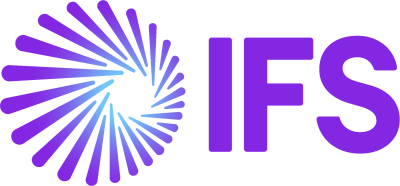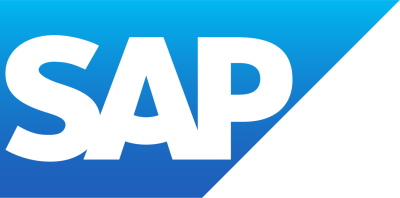Boeing Is Looking to AR Technology to Transform Maintenance Training
Brought to you by WBR Insights
Augmented reality (AR) is creeping into our everyday lives. From instant messaging apps such as Facebook Messenger and Snapchat allowing users to place animated stickers on their selfies to Google Maps' new AR functionality - which layers digital directions on top of real-time, real-world images - AR is slowly but surely permeating the mainstream.
Aside from consumer-facing fun and convenience, however, AR is also beginning to have an impact in business contexts as more and more enterprises pilot and adopt AR capabilities. According to a report last year from ARtillery Research, the global market for enterprise AR applications is estimated to reach $35.2 billion by 2021. Also last year, a separate study from Harvard Business Review found that 49% of executive survey respondents were piloting or had deployed some form of AR or mixed reality in their company workflows, and 68% said they believed the technology would be important to achieving their companies' strategic business goals over the next 18 months.
The State of Industrial Augmented Reality 2019 report from PTC, meanwhile, finds that AR is currently delivering significant value to 69% of industrial enterprises in areas such as training and simulation, work instructions, remote assistance, inspection and repairs, engineering, manufacturing, and field service. "This trend is in line with broader market observations, and step-by-step instructions have quickly become the default starting point for anyone experimenting with AR," says PTC. "The way in which information has been documented, maintained, and shared has historically been slow and costly. More importantly, for the worker accessing it, the abstract context of a drawing or text-based instruction, and even out-of-context video, creates significant cognitive burden and slows work processes significantly while opening them up to errors."
American multinational designer, manufacturer, and seller of airplanes Boeing is one company that has been using AR and VR technologies to aid engineers building aircraft for some time already. Now, the company is looking to use these advanced simulation technologies to transform maintenance training for the next generation of technicians.
Boeing
Installing electrical wiring on an aircraft is a complex task that leaves zero room for error. That's why Boeing has been using AR to give technicians real-time, hands-free, interactive 3D wiring diagrams to follow - right before their very eyes. Technicians use a Microsoft HoloLens to guide the installation of wiring harnesses throughout the aircraft - replacing the "20-foot-long paper diagrams" previously used to complete the task. This improves speed and accuracy of wiring by an impressive 30%, according to the company, saving millions per jet, and helping Boeing produce more aircraft at a faster rate.
The company is now looking at ways it can further make use of AR technology - in particular for preparing the 769,000 new maintenance technicians Boeing has determined will be needed to service the aviation industry's worldwide fleet over the next 20 years.

(Image source: boeing.com)
The company's Pilot and Technician Outlook 2019-2038 report stresses that innovative training solutions will be a key requirement for the next generation of technicians, as advances in airplane technology will drive demand for new skill sets, such as digital troubleshooting and composites repair. It also highlights that the future workforce will be more diverse, more mobile, and more suited to flexible and adaptive learning methods - such as those delivered through AR and VR.
"We are seeing increasing demand for mobile solutions across the board and the ability to deliver the training or knowledge where and when needed," explains Boeing's Pete Boeskov, Chief Technologist for Training and Professional Services. "The next generation of crewmembers and technicians expect to learn and work in different ways. There's an expectation around a digital experience where learning is available in a more continuous way - where and when needed."
As the demand for new aircraft maintenance technicians increases over the next two decades, it will be imperative that the aviation industry finds the right solutions to keep pace with training requirements. Course curriculums will need to be tailored to enable optimum learning, and Boeing believes that new augmented and mixed reality technologies will be key to improving student engagement, quality of instruction, and knowledge retention.
Boeskov says that Boeing has already had success with such fully-immersive solutions - particularly for use cases that demand more accuracy, and for scenarios where practice using real aircraft and equipment is difficult or impractical. "In the virtual world, there is much more opportunity to learn by doing," he explains. "We've had success in fielding VR solutions for training particularly challenging tasks where a fully realistic environment is really important."
Boeing has also created a scalable xR Learning Framework that enables it to create learning content and scenarios that can be quickly delivered through mobile or AR/VR devices. "Ultimately, we want to make it very easy for our trainees to consume these new forms of learning content," says Boeskov.
Final Thoughts
For Boeing, the need to provide more immersive and on-demand training is high. In response to an internal survey about the future of learning and development - an effort that generated more than 40,000 responses from employees around the globe - Boeing's workforce stressed that improving technical development programs was of the highest importance. Since then, Boeing has launched a new learning portal that includes AR-enabled virtual learning options to help employees acquire and brush up on the technical skills required to do their jobs.
"Leveraging new and emerging technology allows us to provide equal access to training for all learners," says Boeskov. "[This enables] on-demand, relevant learning versus a one-size-fits-all training approach."
Talent management, training, and engagement are set to be hot topics at Field Service Palm Springs 2020, taking place in April at the JW Marriott Palm Desert Resort & Spa, CA.
Download the Agenda today for more insights and information.






































